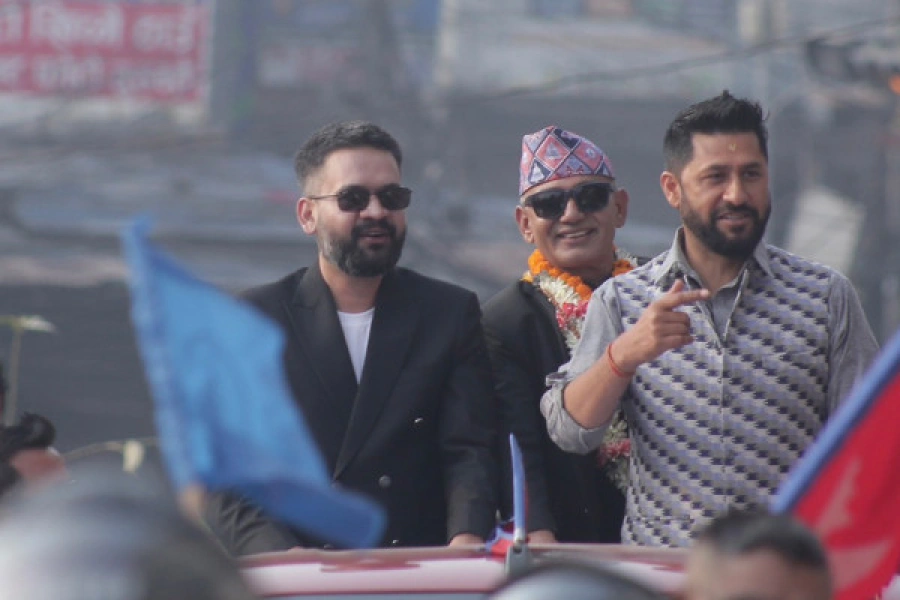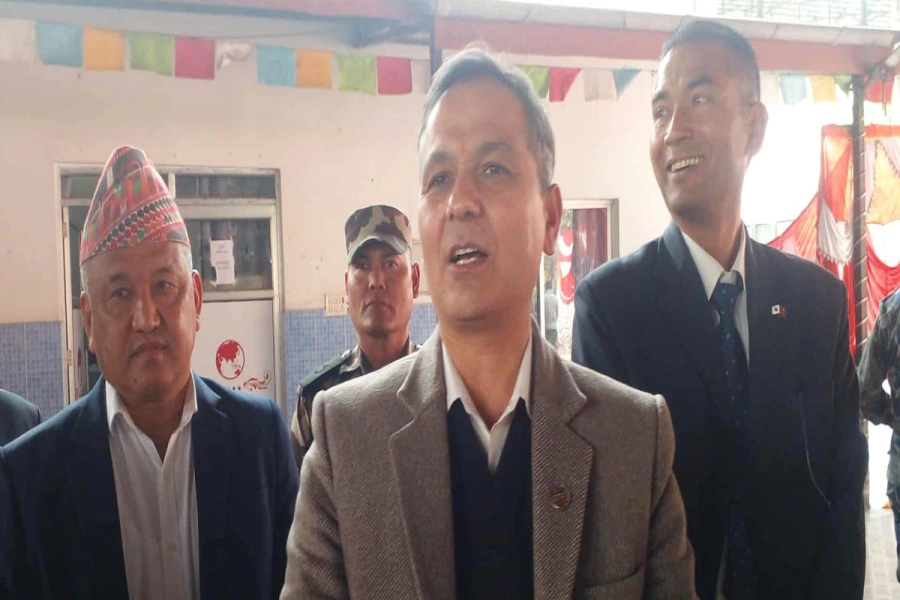SURKHET, Dec 28: Karnali and Lumbini provinces have agreed to collaborate on a feasibility study for the construction of tunnels at two locations along the Ratna Highway, which connects the two provinces. The decision was made in a joint commitment issued after talks between the chief ministers of the two provinces on Friday. The study will focus on tunnel construction at the Kohalpur-Babai and Babai-Chinchu sections of the highway.
The commitment, made after discussions between Lumbini Province Chief Minister Chet Narayan Acharya and Karnali Province Chief Minister Yam Lal Kandel in Birendranagar, also outlines joint efforts to expand key infrastructure. These include the Jamuna-Hilsa Road, Surkhet-Telpani-Bhurigaun Road, Rapti Highway, and the Kohalpur-Surkhet Road.
Similarly, the two provinces have also agreed to request the federal government to introduce direct air services between them. "We have reached an understanding to request the federal government to operate air services from Bhairahawa in Lumbini Province to Surkhet, the capital of Karnali Province," said Karnali CM Kandel, "In addition, we will push for regular flights connecting airports in Lumbini Province to the mountainous districts of Karnali."
Another key agreement focuses on resolving issues related to the expansion of the 132KV transmission line between the provinces. Local residents in Banke are obstructing the construction of towers for the line, which will connect Karnali Province. Both provinces have pledged to work together to address this issue.
Jajarkot-Jumla tunnel way: Bids requested for a feasibility stu...

The agreement also includes plans to identify large-scale projects that could be jointly funded by the two provinces. Other areas of cooperation include coordinating with the federal government for the early completion of the national pride project, the Bheri-Babai multipurpose project, and ensuring uniformity in taxes levied under provincial laws. The two provinces also aim to harmonize the distribution of royalties generated from natural resources.
Regarding a border dispute between the two provinces, the chief ministers have agreed to request the federal government to resolve the issue, based on existing laws and evidence. The dispute involves the Babai area of Bansgadhi Municipality-1 in Bardiya (Lumbini Province) and the Bheriganga Municipality-5 area in Surkhet (Karnali). This area is also crucial for the Bheri-Babai project, which will house a power plant generating 48 megawatts of electricity. The provinces are concerned that this issue could lead to future conflict.
Both provinces also agreed to coordinate with security agencies to tackle drug trafficking and to develop an integrated tourism route connecting Lumbini with Karnali, promoting religious tourism. Additionally, they plan to collaborate with the private sector to create joint tourism packages linking the key tourist destinations in both provinces.
The agreement also covers joint initiatives in infrastructure, including hydroelectric power projects, transmission line expansion, and the construction of drinking water and irrigation systems on the rivers and canals that border the provinces. Both provinces will also work together on road and bridge infrastructure near the provincial borders.
Likewise, the two provinces will jointly determine passenger fares for public vehicles, conduct road safety programs, and train drivers to reduce traffic accidents. They will also work on providing access to Karnali’s agricultural products like fruits, herbs, and organic vegetables in Lumbini’s main markets, and vice versa for Lumbini’s food products in Karnali.
Karnali CM Kandel emphasized the importance of cooperation between the provinces, noting that Lumbini serves as the gateway to Karnali. "Karnali does not have direct access to its southern neighbor, so Lumbini is crucial for us," he said, "This is why we have decided to prioritize the road connection between the two provinces."
Similarly, Lumbini CM Acharya said that the 19-point agreement will be incorporated into the policy, programs, and budget for the coming year. He also mentioned that the federal government will determine the royalties that the two provinces will receive from the Bheri-Babai Diversion Multipurpose Project, a national pride project.







































